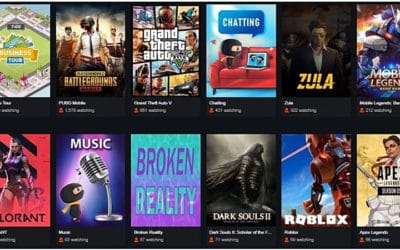To cap the last Friday of the week, we have found these interesting updates such as Lyft and Waze’s partnership, blockchain technology in banks, and how technology companies can benefit from crowdsourcing; check out our curated weekly roundup of the breaking news and must-read thought leadership pieces on the crowd economy spotted by the Crowdsourcing Week team.
Lyft partners with Waze to improve routing and services
Service and data, a perfect match to give more room on efficiency and improvements, so this is how Lyft will capitalize on Waze’s crowdsourced data via Albany Daily Star.
Drivers will be able to switch seamlessly back and forth between Lyft and Waze using a new “Return to Lyft” button. And to help keep their customer ratings high through more efficient trips, Lyft says that Waze, which uses crowdsourcing data to reduce traffic and improve routing, will now be the default navigation tool for all of its drivers. As a result of the partnership with Waze, Lyft will be able to use the Waze Transport SDK, to increase the efficiency of its service for both drivers and passengers. The real-time route updates unfolded by Waze will facilitate the matching of drivers with another passenger to be picked up on their way to a specific destination; thereby bringing about a reduction in wait times for potential passengers who hail a Lyft car.
If only: crowdsourcing initiatives and India’s government
How can we spark citizen engagement and participation? One way is to set up online platforms and listen to the community, tackle and debate on issues and most importantly, take action. Unfortunately, the Indian Parliament has no laws to pay attention to online petitions, Kovuuri G Reddy writes via IBN Live. If only crowdsourcing will be taken seriously, use the paradigm to build a democratic society, we can accomplish more.
Officially, the Government of India has no platform to solicit or seek online petitions. Because India is on the cusp of digital ‘revolution’ ranging from allocating a budget of Rs 10,000 crores to Start-Ups and to impart digital literacy to more than five million Indians, the Narendra Modi government should take initiative to open an online platform for petitioning to his government, directly, and to act upon them. If this happens, the Prime Minister Narendra Modi would be doing a favour to himself, and to the heartbeat of digital and non-digital Indians. If this happens the Government can debate not only on issues what the opposition parties want but also what want the public wants (bypassing the legitimate legislators?).
Technology companies can benefit from crowdsourcing
Here’s a piece how crowdsourcing is helping this company, Pentaho, get ideas for new features from people using the software via Forbes.
The benefits of these competitions and open submissions are that people enjoy participating, creating and competing with each other. As well, your community of users are enabled to participate, which helps increase customer engagement. You’ll also then have a wide variety of options to choose from, and can quickly collect a large number of ideas. Your marketing team also gets to run with the program and stir up interest over social media. This means there’s no need for focus groups and committees, and your customers are aware of your new product before it hits the market.
How crowdsourcing works in pharmaceutical industry
Getting new drugs to market can take such a long time. Priya Bhutani has launched her new business RegDesk, to help crowdsource consultants help pharmaceutical firms get their products launched faster. If you’re in the pharmaceutical industry, you might be interested to know how she did it via Philly.com
She did not set out to head a high-tech consultants-matchmaking company – a business she acknowledged as “a very unsexy idea.” She launched RegDesk in November 2014 to provide, in part, a marketplace to crowd-source regulatory consultants who would help medical-device and pharma companies launch their devices and drugs faster in more than 170 countries. She “realized how complex the regulatory landscape is,” and how trying it is for companies to have to maneuver through it to get their products in consumers’ hands. Currently consisting of a five-member operations and development team with headquarters in co-working space in University City Science Center, RegDesk offers three specific features, rolled out in phases over the last 17 months.
Bank of America is exploring the Blockchain technology
Bitcoin failed Mike Hearn but not blockchain technology, perhaps the slogan, “Blockchain is not dead” perfectly fits this update now that the Bank of America is aggressively taking the necessary measure – “by attempting to patent some of the use cases of the technology,” CNBC reports.
Bank of America is trying to steal a march on the latest developments in the technology behind digital currency bitcoin by loading up on blockchain-related patents. Blockchain works like a huge, decentralized ledger for the digital currency bitcoin which records every transaction and stores this information on a global network so it cannot be tampered with. But Bank of America is going one step further by attempting to patent some of the use cases of the technology. The company has already filed for 15 blockchain-related patents and is currently in the process of drafting another 20 to be submitted to the U.S. Patents and Trademark Office (USPTO) later this month, a spokesperson told CNBC on Wednesday.
There are tons of fantastic stories out there. What else caught your eye this week? Did you come across some breaking news or a good thought piece?





0 Comments